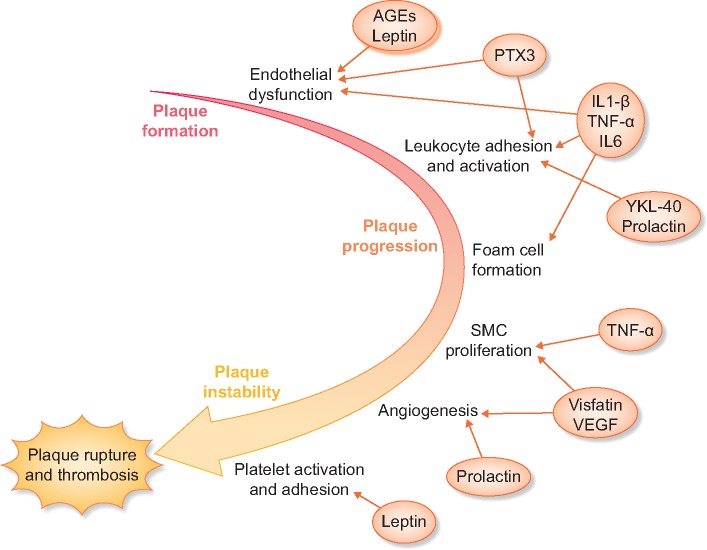FIGURE 1.
Middle molecules influence multiple steps in atherosclerosis progression. Elevated leptin and AGE levels are associated with endothelial dysfunction, which is also promoted by inflammatory molecules such as PTX3 and IL-1 beta. Elevated cytokines and other molecules such as prolactin and YKL-40 increase leukocyte adhesion and activation leading to foam cell formation. The progression to unstable plaque with migration and proliferation of smooth muscle cells and angiogenesis is also influenced by uremic toxins, eventually leading to plaque rupture and thrombosis.

